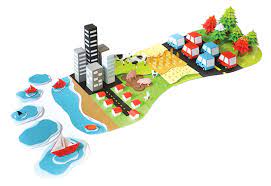To say that Japan and its people have made great strides in every sphere they choose would be a gross understatement. Be it the automobile industry, cosmetics, gaming consoles or even cooling systems for space crafts, they have aced their game. This is an enviable feat for a nation that is not abundant in profit making resources like petroleum or mineral ores. It is no secret how they put the war behind them and made phenomenal progress in the technological sector making them one of the most advanced nations in infrastructure and state-of-the art products. How did they achieve this?
They understood that to be able to find a place in the international market, they had to be diligent about quality and diligent they are! Words would not suffice to describe their sincerity. Japan has not only made a mark in the development sector but also on our everyday conversations by penetrating the English language and some of the everyday words taken for granted are, in fact, of Japanese origin. Let us walk through some of these.
Riksha or Rickshaw comes from the word jinrikisha- man powered carriage- originated in Japan in the 1800s.
Emoji- e(pronounced ae)-picture, Moji-character or letter- a pictogram
Tofu- tou-beans, fu-ferment
Teriyaki- the ever popular chicken teriyaki is originally a Japanese style of cooking where Teri means shine and yaki means grill. Adding sweet sauce and grilling chicken gives it a shine.
Karate-pronounced Karathay and not ka-rah-tee:-Kara-empty,te-hand meaning a fight involving just the hands and no weapons.
Typhoon-Taifuu-Tai-pedestal or stand, fuu-wind
Tsunami- tsu-port/harbour, Nami-wave. Wave hitting the port.
Karaoke- pronounced karaokay and not kariokee. Kara-empty,oke-comes from orchestra. Singing without an orchestra.
Origami- pronounced origaami and not awrygami. Ori-bend or fold; kami-paper. The art of folding paper and making figures.
Ninja- nin-spy, sha-Person. A person who is fast and unseen.
Honcho- Pronounced hancho. Han -squad leader, shogunate; cho-leader
This is not an exhaustive list but it gives you a glimpse into the influence of Japanese language in everyday parlance. The next time you hear someone mispronouncing these words, I am sure you will smile to yourself.
Meena sunderrajan


